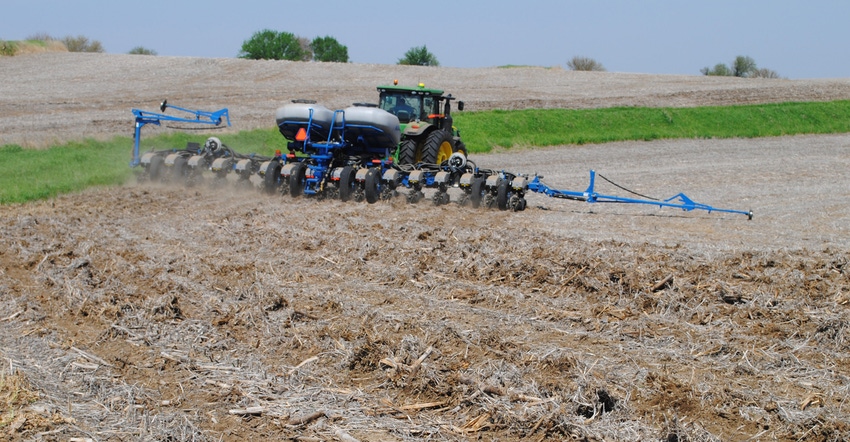January 26, 2022

Editor’s note: This information is provided for educational purposes and is not intended as legal advice.
Parents co-signing loans for their children is a common practice in agriculture. This usually happens when the child needs a loan to buy land, livestock or farm equipment.
Lenders are usually more willing to make the loan to a beginning producer if the parents co-sign. This means the parents promise to repay the loan if the younger producer cannot. Parents have been doing this as a way to help their kids get started in agriculture for decades.
If the child turns out to be an effective manager, the risk of the parents being responsible for the unpaid loan balance is pretty manageable.
Another scenario
There is another situation when parents may be asked to co-sign or guarantee payment of a child’s debt — when the younger producer can’t pay their loans. This may be the case today for some Nebraska producers, given current high input costs and up-and-down crop prices.
Lenders may ask the borrower to provide additional loan collateral, such as land, livestock or equipment that is clear of debt. The request for a parent’s loan guarantee is another common way to provide additional security for loan repayment, especially where the borrower does not have additional property to pledge as loan collateral.
Obtaining the loan guarantee from the younger producer’s parents often ends up being a late step in the ultimate loan foreclosure process, as illustrated in a 1987 Nebraska Supreme Court case (226 Neb. 314).
In May 1983, the lender notified the son that it would need the father’s guarantee of the son’s operating loan to continue the loan. The amount owed was more than $120,000, and the son’s net worth was less than $500. The father signed the guarantee, and the lender continued the loan.
Five months later, in November 1983, the lender called the loan because the son couldn’t pay the entire balance due. After the son’s property had been sold, the father paid more than $75,000 to cover the unpaid balance. If the father hadn’t co-signed, the lender probably would have started foreclosure in May, perhaps with some unpaid balance, and Dad would have kept his $75,000.
The family should consider the request for parental loan co-signing as the potential beginning of the loan foreclosure process. You should consult an attorney and explore bankruptcy and non-bankruptcy options, including farm debt mediation. (Call the Nebraska rural response hotline at 800-464-0258 for more information.) You need to develop a debt workout program, of which the loan co-signing may be a part.
4 considerations
Here are some points to consider before you sign a loan guarantee for a family member who is heavily in debt:
1. Will the loan co-signing work? Get an outside financial analyst to give you an opinion regarding whether the operation can quickly be put on sound financial footing, and whether the loan co-signing will help in that process. If the answer to either question is no, see No. 4.
2. Cap the amount of the loan guarantee. You don’t want an open-ended liability, so fix the maximum dollar amount that you will be liable for.
3. Find out from the lender how much debt payback is needed this year and in subsequent years for the lender to continue operating financing. If the family member has to pay everything off in one year, it isn’t likely to happen unless you believe in miracles (see No. 1). The lender might agree to accept the borrower reducing the debt to a manageable level over a period of years (say five years), in order to get the parent or parents to co-sign the loan.
4. Can you afford to lose the amount of the loan guarantee (see No. 2)? If you can’t afford to lose the money (and sadly, it is more likely than not that you will), then you can’t afford to sign the loan guarantee.
This is a very difficult situation — no one wants to be part of losing the family farm or ranch. You probably need to approach this situation as being a debt workout, and get an experienced attorney to negotiate a multiyear workout agreement as part of the loan co-signing process.
This way, both the lender and the farm family will know what debt repayment conditions need to be met each year to avoid loan foreclosure. If the loan guarantee isn’t part of a financial turnaround plan that has at least a fighting chance of success, don’t sign the guarantee unless you absolutely don’t need the money for your own retirement.
Aiken is an agricultural and water law specialist at the University of Nebraska-Lincoln.
You May Also Like




